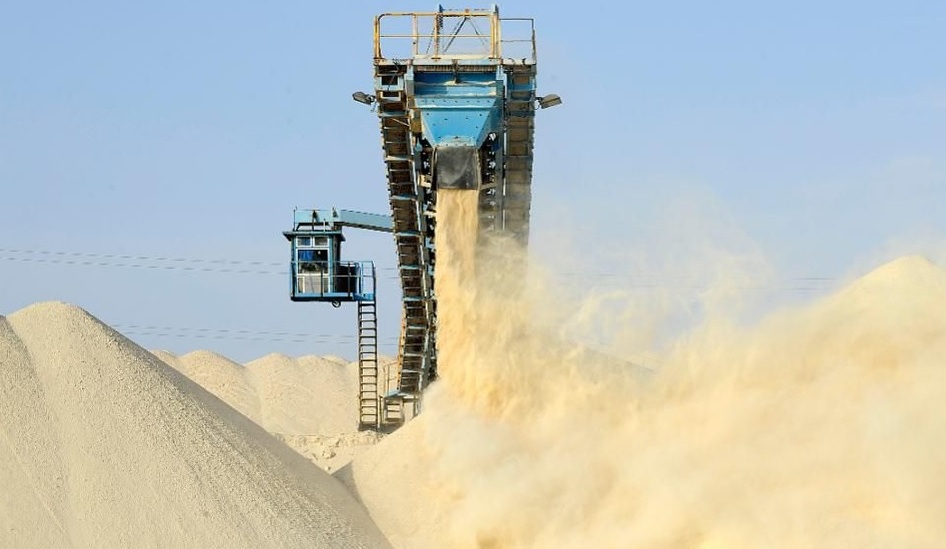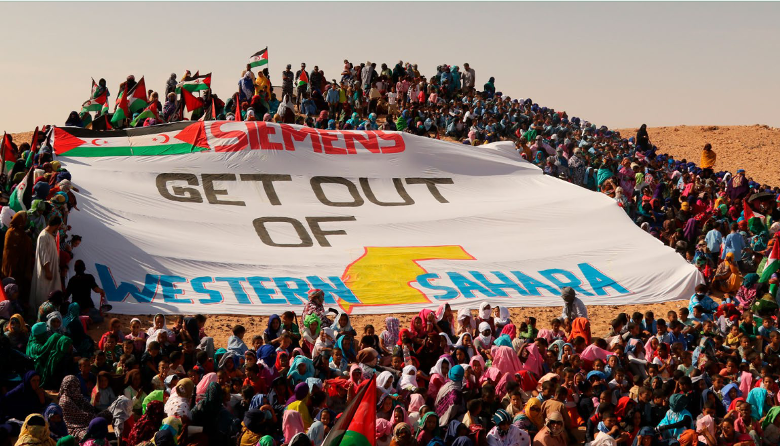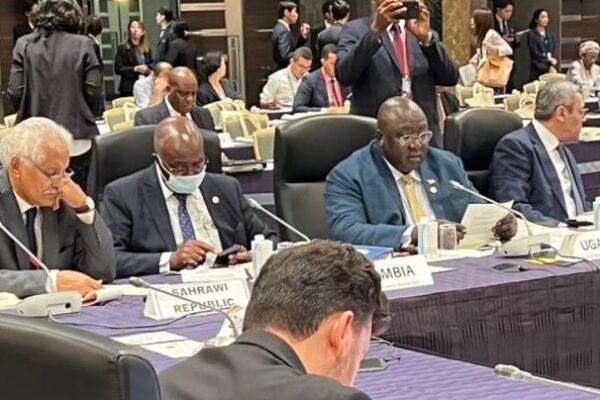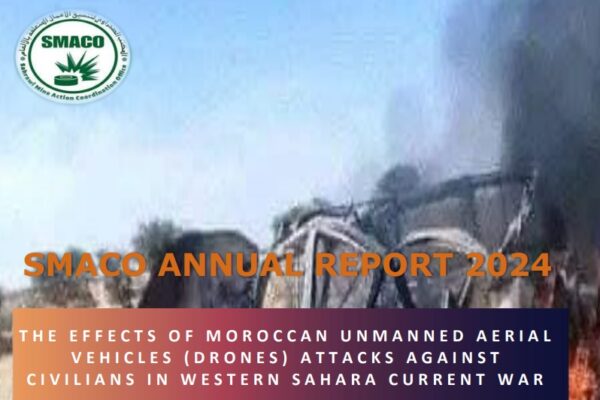Natural Resources
The natural resources of the Saharawi Republic hold immense potential, capable of transforming the territory into one of the wealthiest nations globally. However, the Moroccan occupation of parts of the territory and the exploitation by European and other countries have led to the suffering of the Sahrawi people, exacerbating colonialism and violating human and peoples’ rights. This exploitation not only perpetuates impoverishment but also obstructs the development of the country, hindering its ability to contribute to regional and continental integration.
Facts about Western Sahara resources
Phosphate

A crucial mineral for agriculture to produce food in the future. It cannot be replaced. The Sahrawi Republic is the third richest territory in phosphates’ reserves worldwide. It has six main mines, only one of them is now illegally exploited by Morocco after it was discovered and exploited by Spain during the 1960s and 1970s. The Boukraa Mine has an estimated one quarter of the international reserves of phosphates. It contains around 10 billion tons of the richest types of phosphate rocks.
In 2007, the occupying force made more than 1.200 billion dollars according to data by the World Trade Organization.
In 2012 specialized organization estimated that the occupying force exported more than 2.8 million tons of Phosphates.
Fisheries

The Sahrawi Republic is among the richest countries in terms of fishing capacity. During the colonial era, Spain opened the coast to foreign multinational fleets, and in 1969 alone managed to catch about 1.3 million tons of fish. Fish wealth in the territory is divided into two main types:
1. Surface fish: Which are also divided into coastal fish such as Sardines, Mackerel, Mullet, Anchovies and small Tuna species. This type of fish represents more than 80% of the quantities caught.And costal fish caught in the high seas such as large Tuna species.
2. Deep Waters fish: such as Hake, Mussel, Whale, as well as capillaries such as Octopus and Squid as well as Crustaceans, Mollusks and Sea Shells.
Iron
Was discovered in various areas. Some areas are estimated to contain commercial reserves that reach 6 billion tons of high-quality Iron.
Gold
Recent studies revealed in the last years that there are various regions that contain Gold. In some places the quantities are commercial reaching 48 g per ton.
Uranium
Saharawi phosphate is rich in Uranium. The ton of Phosphate contains 200 g of Uranium at least. Recent studies also show the existence of Uranium in important quantities especially in Techla and Ausserd (two regions in the Southwest of the territory). In 2009, the International Atomic Energy Agency (IAEA) estimated the reserves in a region East of the occupied city of Dajla to around 50.000 tons of Uranium.
Oil and Gas
Not yet discovered in commercial quantities but all studies indicate that there are strong possibilities of Oil and Gas in at least three zones that have all the geological and structural qualifications to be placed in the category of oil basins.
Recent studies also declared the existence of Diamond, Niobium, Tantalum, Rare Earth Elements, Tungsten and Manganese, in addition to basic metals such as Nickel, Copper, Chromium, Cobalt as well as Vanadium, Titanium etc…

Morocco, Spain, France, Portugal, New Zealand, Canada, Australia, Lithuania, Canada, Mexico, Russia, Japan, Iceland, South Korea, Saudi Arabia, Germany, China, USA, India, Iran, UK, Ireland, Italy, Kuwait and others.
Legal aspect of the Western Sahara natural Resources
The international law considers the exploration and exploitation of the natural resources of the occupied Western Sahara illegal.
In 2002, the UN Legal Counsel, Hans Corell issued a Legal Opinion following a request by the UN Security Council, and concluded that: “While the specific contracts which are the subject of the Security Council’s request are not in themselves illegal, if further exploration and exploitation activities were to proceed in disregard of the interests and wishes of the people of Western Sahara, they would be in violation of the international law principles applicable to mineral resource activities in Non-Self-Governing Territories.”[1]
In 2015, the Office of the Legal Counsel of the African Union issued an even stronger Legal Opinion with unambiguous conclusions on the same issue stating that: “Morocco has no legal right under the UN charter and international law to occupy or govern the Territory of Western Sahara”. It identified Morocco’s status as an “occupying power“, as it is not an administering power in accordance with the UN Charter.
“Accordingly, the people of Western Sahara and their legitimate representatives must not only be consulted but they must consent and effectively participate in reaching any agreement that involves the exploitation of natural resources in the Territory of Western Sahara“,[2] the Opinion concludes.
In 2016, the European Court of Justice concluded that “The Association and Liberalisation Agreements concluded between the EU and Morocco are not applicable to Western Sahara”, since the two territories are two distinct countries, and therefore, Morocco and the EU cannot sign agreements that include Western Sahara without the formal consent from the Saharawi legitimate representatives, Polisario Front, as recognized by the UN and the EU Court. [3]
In 2018, the same European Court issued a second ruling this time on fisheries concluding that: “The Fisheries Agreement concluded between the EU and Morocco is valid in so far as it is not applicable to Western Sahara and to its adjacent waters.”[4]
“From the analysis above, it is evident that both the UN and AU must exercise their responsibilities and put pressure on Morocco to comply with principles of the UN and relevant international law on the right to self-determination and exploitation of natural resources. The uncertainty that has marked the issue of Western Sahara for over four decades cannot be allowed to continue..” (Par 66, Legal Opinion on Western Sahara Natural resources, THE OFFICE OF THE LEGAL COUNSEL, AFRICAN UNION.
[1] The complete text of the UN Legal Opinion can be consulted here.
[2] The complete text of the AU Legal Opinion can be consulted here:






